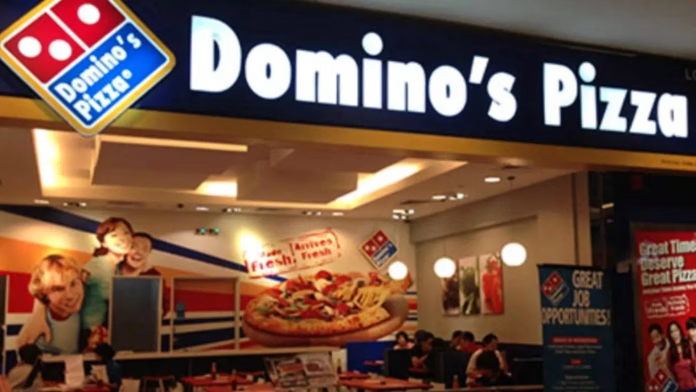Domino’s, the pizza chain, is gearing up to join the Open Network for Digital Commerce (ONDC). According to a senior executive from Jubilant FoodWorks, Domino’s is actively working on integrating its technology to start accepting orders on the interoperable commerce network. This update was announced during an earnings call on May 17.
Sameer Batra, President and Chief Business Officer of Jubilant, said, “We do want to get onto the ONDC bandwagon. We are organising ourselves to launch it on ONDC. Wherever customers are, we want to serve them with Domino’s pizza… At the moment, our teams are working on technology scoping and integration. Whatever time it takes to launch, we will get into ONDC.”
The emergence of the government-backed interoperable commerce network is perceived as a threat to the dominant position of Swiggy and Zomato in the Indian food delivery market. Unlike the platform commissions charged by these two players, which can range between 20 percent to 30 percent, the current commission rate on ONDC is approximately 8-9 percent.
Read More: ONDC sparks price war, threatens Zomato and Swiggy dominance in food delivery space
ONDC asserts that the reduced commissions on their network will result in more affordable prices for consumers. As restaurants, grocery shops, and electronics brands on the platform are expected to pass on the benefits, lower listing prices for food items on ONDC were observed earlier this month, prompting many to view it as compelling evidence of the network’s efficacy.
Read More: ONDC not meant to be a threat to any industry, says DPIIT Secretary
However, analysts from various brokerage firms and industry experts have raised concerns about the sustainability of the lower prices observed on ONDC in recent times. They point out that these reduced prices have primarily been a result of substantial discounts offered by network participants, including seller-side apps, buyer-side apps, and ONDC itself. As a result, there are doubts about the long-term viability of such aggressive discounting strategies.
Read More: Brokerage firm Motilal Oswal dismisses immediate threat to Zomato from ONDC
Jubilant’s preference is to handle more orders through its own app to cut costs. However, the company’s management has reiterated their commitment to serving pizzas through any available channel.
According to Jubilant’s recent earnings report, the company introduced a loyalty program last year, offering customers a free pizza after they place six orders through its app. Referred to as Domino’s Cheesy Rewards, the program has witnessed a remarkable surge in enrollment, with a 28.3 percent increase compared to the previous quarter, reaching a total of 13.6 million members. The loyalty program has also made a significant impact on the company’s business, as the orders from loyal customers contributed to 45 percent of the total orders in March 2023, as reported by the company earlier this week.
The Domino’s franchise owner is surpassing competitors like Zomato and Swiggy when it comes to food delivery speed. Unlike other food aggregators, Domino’s has consistently conducted its own pizza deliveries, ensuring control over the quality of service and the ability to meet the promised delivery timeline of 30 minutes. This strategy allows Domino’s to prioritize timely delivery while maintaining high standards and ensuring customer satisfaction.
Currently, Domino’s is conducting a pilot program in Bengaluru, leveraging its extensive network of 175 physical stores, to provide pizza deliveries within just 20 minutes. This initiative aims to offer an even faster service to customers in the area. Encouraged by the success of the pilot, Domino’s intends to expand this expedited delivery service to 6-7 additional major metropolitan cities in a phased manner. The goal is to bring the convenience of quick pizza deliveries to more customers across multiple urban centers.
On the analyst call, Batra underscored the significance of faster deliveries not only for customer satisfaction but also for the earnings of Domino’s delivery executives. Taking inspiration from hyperlocal commerce platforms, the company aims to enable each rider to fulfill more orders per hour by reducing delivery times. This, in turn, translates into increased earnings for the delivery personnel. By prioritizing efficiency and speed in its delivery network, Domino’s seeks to create a win-win situation where customers receive their orders promptly, while delivery executives can maximize their earnings through higher order volumes.
“We have guaranteed 20 minutes when we believe the right time from the store to the customer location is about 7-8 minutes. So, if you add 7-8 minutes (for going back from the customer location to the pizza store)…theoretically, you can do four deliveries per hour. By then, we are obviously not at four. So, there is huge headroom to be more efficient,” said Batra.
“And anyway, we pay this workforce per delivery… From a customer’s perspective, it materially improves the Net Promoter Score, almost to the tune of 500 to 1,000 basis points… We have seen this uplift if you do it consistently, so that gives us the confidence,” he added.





